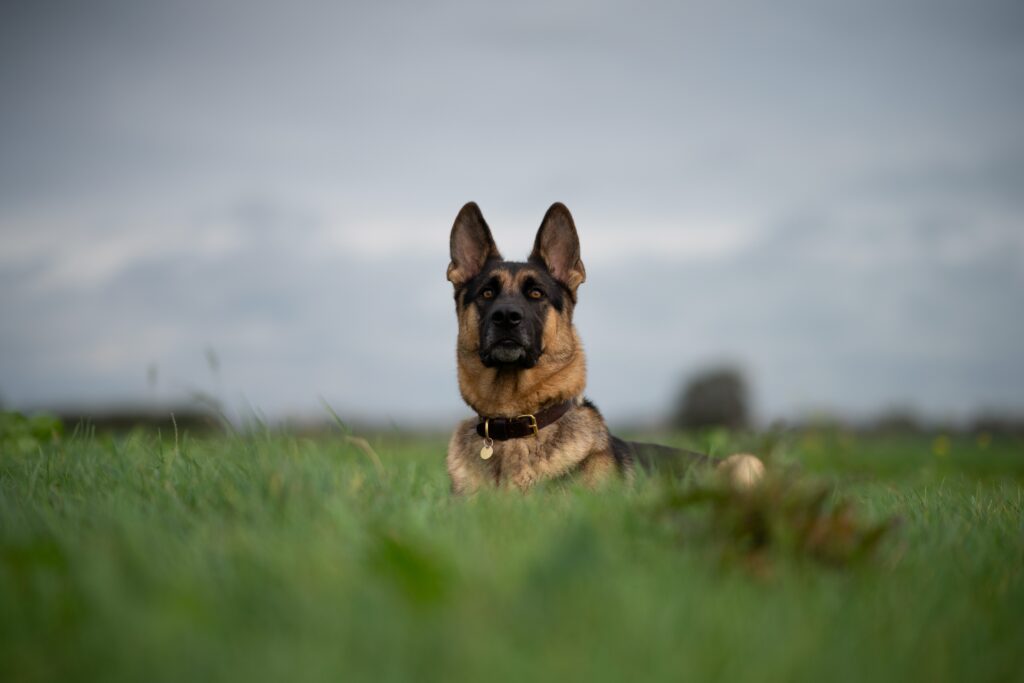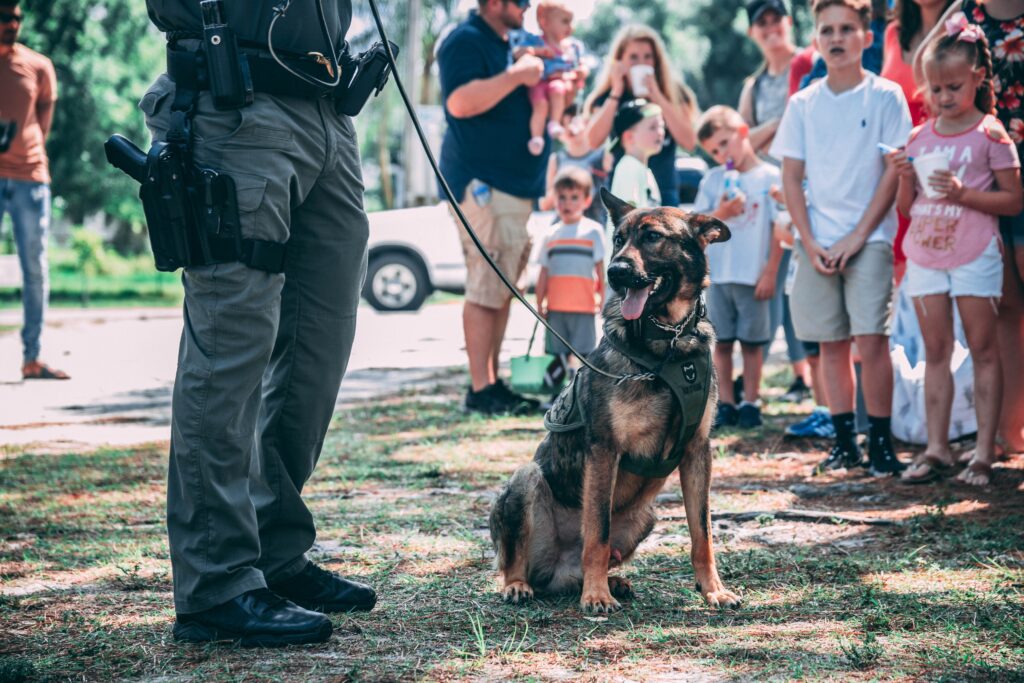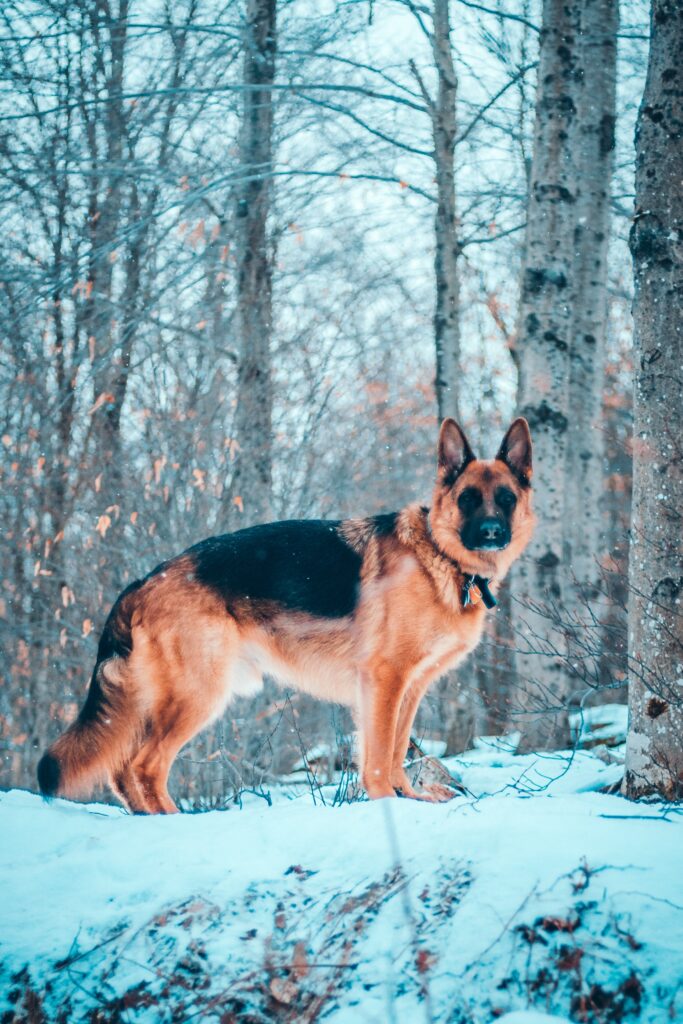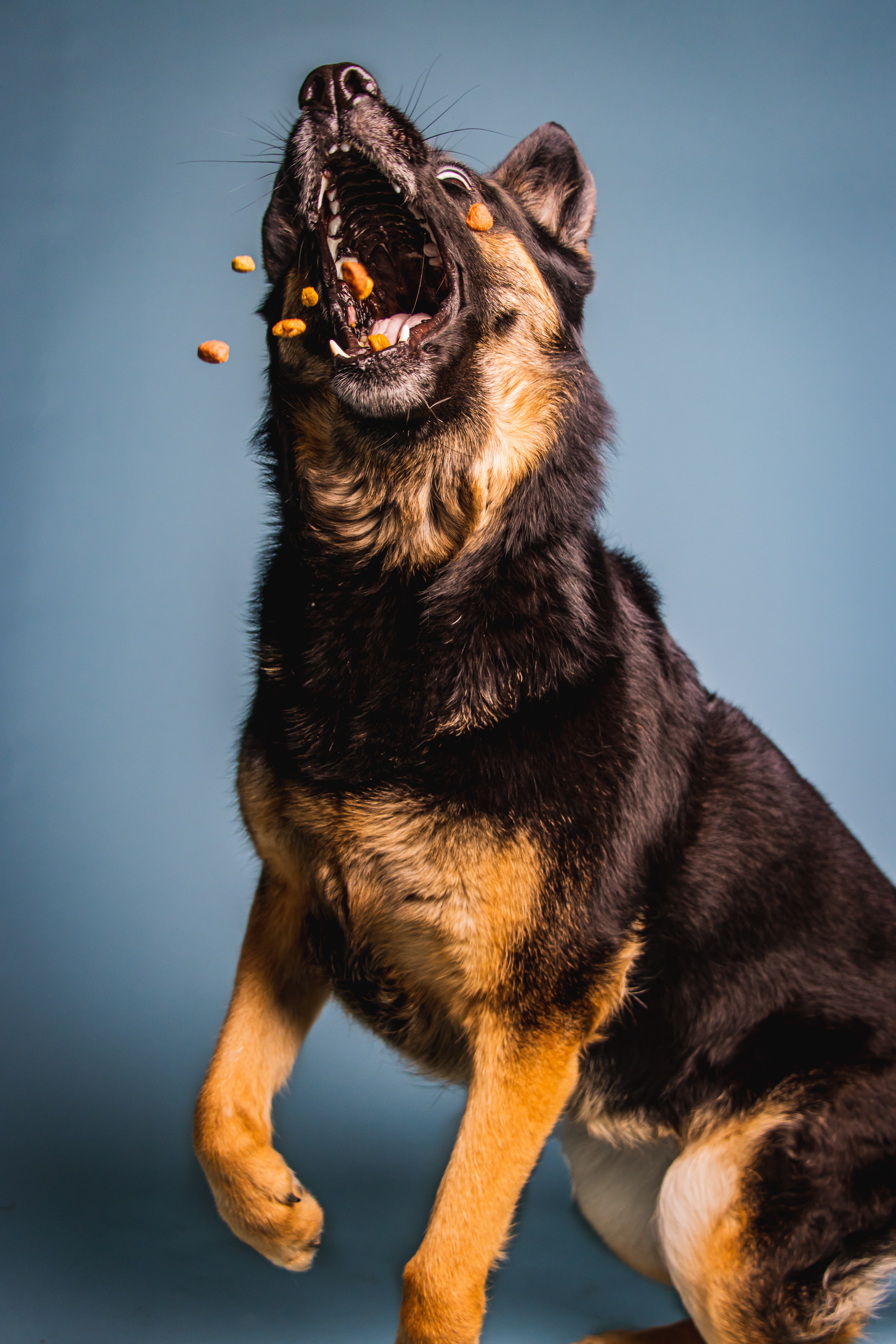How Do I Know If My German Shepherd Will Protect Me?

While many intelligent breeds fit the role of a protection dog, the bold and loyal German Shepherd often tops the list. Fear is an unnatural trait for this canine (except maybe when the Dyson comes out), but that doesn’t mean your puppy will grow up to be an efficient protector without a fair bit of work.
A strikingly gigantic canine with a loud bark may scare off most people, but criminals are getting wiser nowadays. Unless you have trained and tested your dog, you cannot assume that your canine sidekick will fight for you and defend you with its life.
Watchdogs vs. Guard Dogs vs. Protection Dogs
If you want a dog for security, you must decide whether or not you need a guard dog or a protection dog. Now, what’s the difference between a guard dog and a protection dog? Understanding the differences between these two will help you figure out which type of training your dog needs.
What Is a Watchdog?
Any dog can be a watchdog, including a two-pound Chihuahua. Big or small, a dog will do a great job notifying you that raccoons are ganging up on a house cat or planning a late-night dumpster raid.

Your pooch may chase the unsuspecting UPS guy out of the yard, but a watchdog’s job ends there. Don’t assume that just because a dog is barking, they are going to attack. Watchdogs are not hellbent on harming trespassers, although they might bare their teeth or bite when cornered.
What Do Guard Dogs Do?
Guard dogs are large, immensely powerful canines employed as sentries of an estate or a facility. An efficient guard dog patrols the perimeter alerting you of any suspicious activity and he is more than capable of controlling the situation in your absence. If the need arises, he will attack without fear or hesitation.
A guard dog only requires one or two caretakers. Socialization is not part of the game because you will want your dog to be standoffish. Criminals are smarter nowadays. Good guard dogs are never bribed, even if an employee or a friend of yours brings a T-bone steak. These canines are trained to believe that all people are bad unless proven otherwise.
The most competitive type of guard dog is the K9 officer. These highly trained canines can perform a number of functions and they can work with or without their handler’s supervision. But out of all suitable guardian breeds, only the Belgian Malinois and German Shepherd are preferred to work in the police and military.

While police and military dogs can behave as family pets, you must understand that they are more reactive and aggressive than the average pooch. An average family is not the ideal placement for such dogs as they refuse to obey commands from anyone other than their handlers.
What Makes a Protection Dog?
A personal protection dog is a great choice for the most vulnerable segments of the population, such as single women, physically challenged individuals, the elderly, and families with children. You also get a workout buddy who doubles as a security guard when hitting the road and hiking in unfamiliar trails, to name a few scenarios.
Unlike guard dogs, personal protection dogs need a lot of socialization because the goal is to have your dog accompany you in public. Your dog has to be around all kinds of people in different and unpredictable situations.
You will want to take your dog to town and have him socialize from a young age. A good personal protection dog remains composed when he encounters smaller animals and aggressive dogs.
Do You Need a Guard Dog or Protection Dog?
The AKC has made a list of the best guard dogs, but any large, confident dog with a magnificent physique can be trained to be one. However, only four breeds are qualified for protection work and these are the German Shepherd, Belgian Malinois, Doberman Pinscher, and Rottweiler. A dog’s intelligence, obedience, and temperament are equally important as strength.
Tips for Training Your Dog to Protect You
German Shepherds are notable for their courage and loyalty, but they do not come out of the womb to do protection work. You may not want to hear this, but the reality is that an untrained dog will back down under pressure.
Choose a working line GSD.
Working-line German Shepherds have more drive than their larger, stockier show line counterparts. These canines are bred for their personality, intelligence, and trainability.
How working line GSDs interact with humans and animals is also different. So whether you want a protection dog or livestock guardian, an offspring of two working line German Shepherds would be the best candidate for the job.

Early socialization is key.
Unsocialized dogs are cautious and aloof. Your dog may bark or even attack people when all you have wanted was for him to scare the heck out of suspicious strangers. As soon as the pupper has completed his puppy shots, you will want him to tag along wherever you are so that he will learn how to respond to the world around him.
Screaming and running children around the house could become a problem because your GSD may treat them similarly to livestock and want them to get in line. So if you have kids, you will need to instruct them on how to behave around the dog. Likewise, you need to supervise your dog and teach him that these little creatures aren’t livestock running awry.
Master obedience training.
If your puppy refuses to listen to simple commands, such as “sit” and “stay,” how do you expect him to respond to more complicated tasks? Always start with basic training commands.
You should also consider enrolling your dog in an obedience class. A group class will help your puppy take on more difficult commands faster and at the same time, he can socialize around puppies.
Reward desired behaviors.
The most important step of the process is rewarding good behaviors with treats, toys, praise, and more affection. Positive reinforcement serves multiple purposes: teaching dogs obedience, bonding them with their owners, and letting them have fun.

Take good care of your dog.
Did you know that the German Shepherd is a one-person breed? While the dog may be protective of his human family, he will treat each family member differently. Doggo may develop more fondness for his primary caretaker. He will pay attention to whoever commands their attention more.
Why You Should Consider Professional Help
The stereotypical guard dog is far from a personal or family protection dog. So if you want the latter, it is wise to seek a professional that will tailor your dog according to your needs. Training a personal protection dog is much more complex and demanding than the average person thinks. Among many others, a protection dog should be able to turn aggressively toward a threat and vice versa. He should bite and release only on command.
Conclusion
A trained canine reduces the need for firearms and can be just as effective as alarm systems. Imagine having a personal bodyguard or a 24-hour security camera that moves, barks, and has an impressive set of teeth!
The distinct difference between a guard dog and a personal protection dog is that a protection dog takes its lead from the owner and acts on command, whereas a guard dog will maintain their duties on their own.
However, not all German Shepherds are suited for protection work but they can still be excellent property guard dogs.
Now, weigh your options carefully.
Suggested readings:
